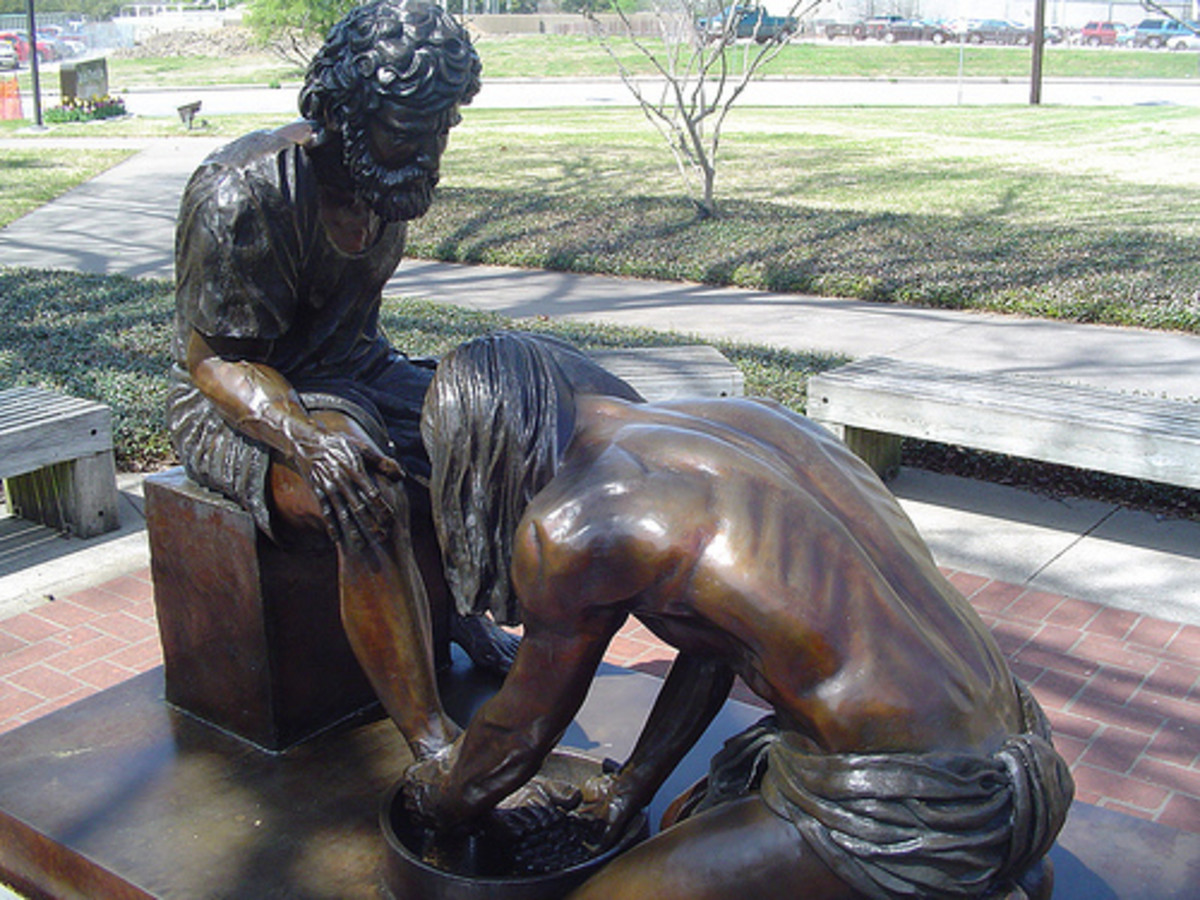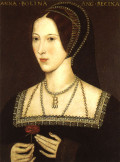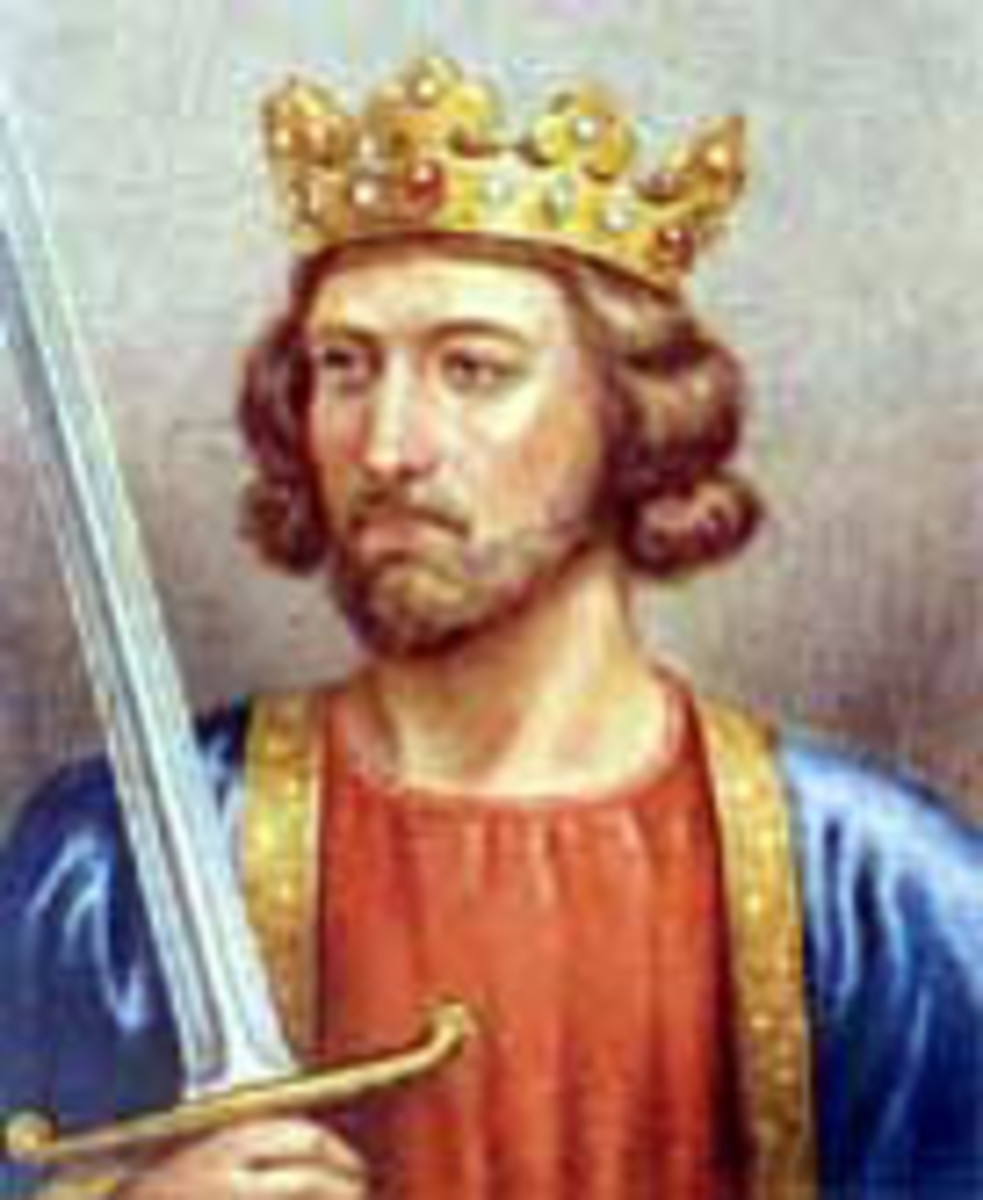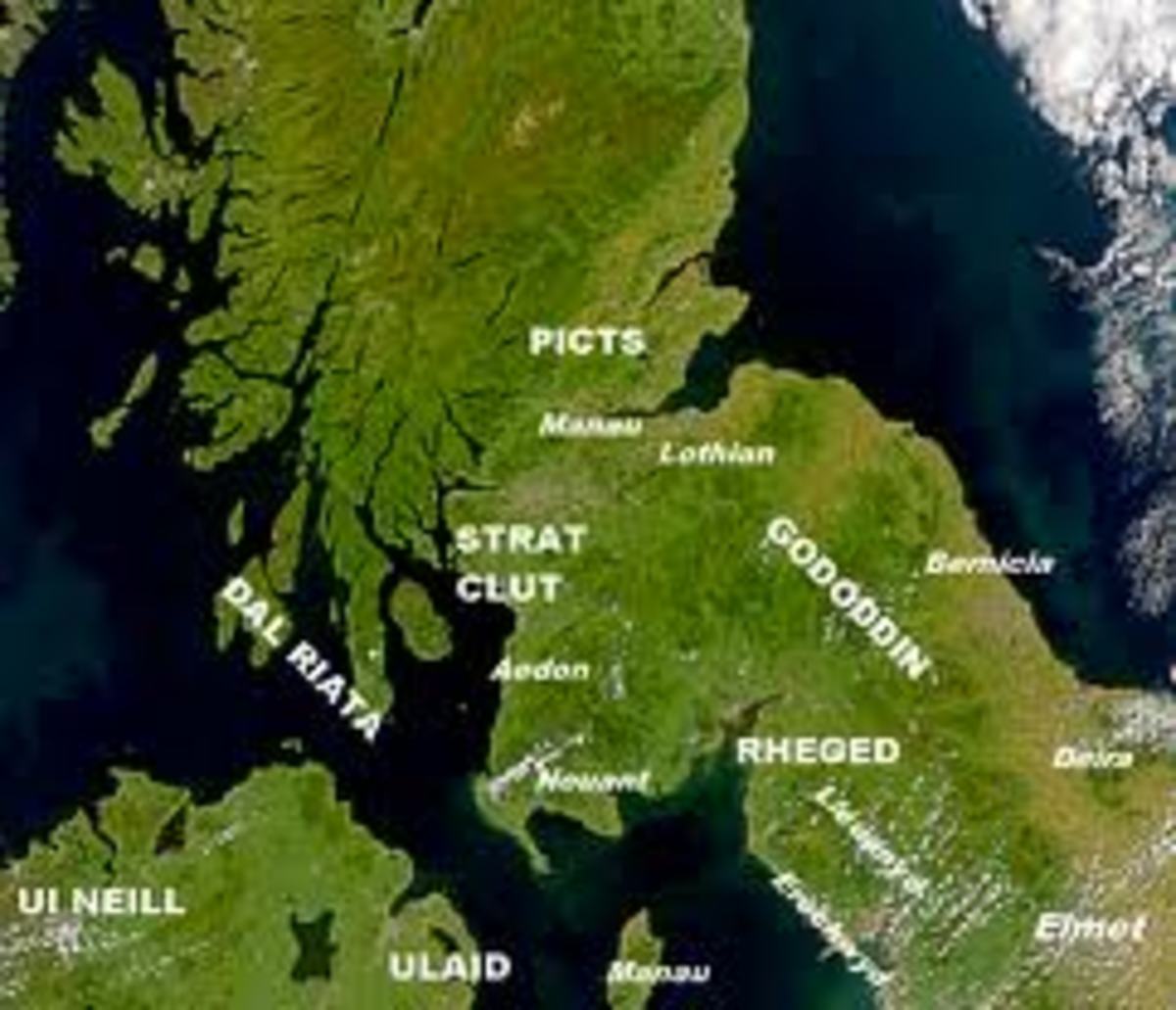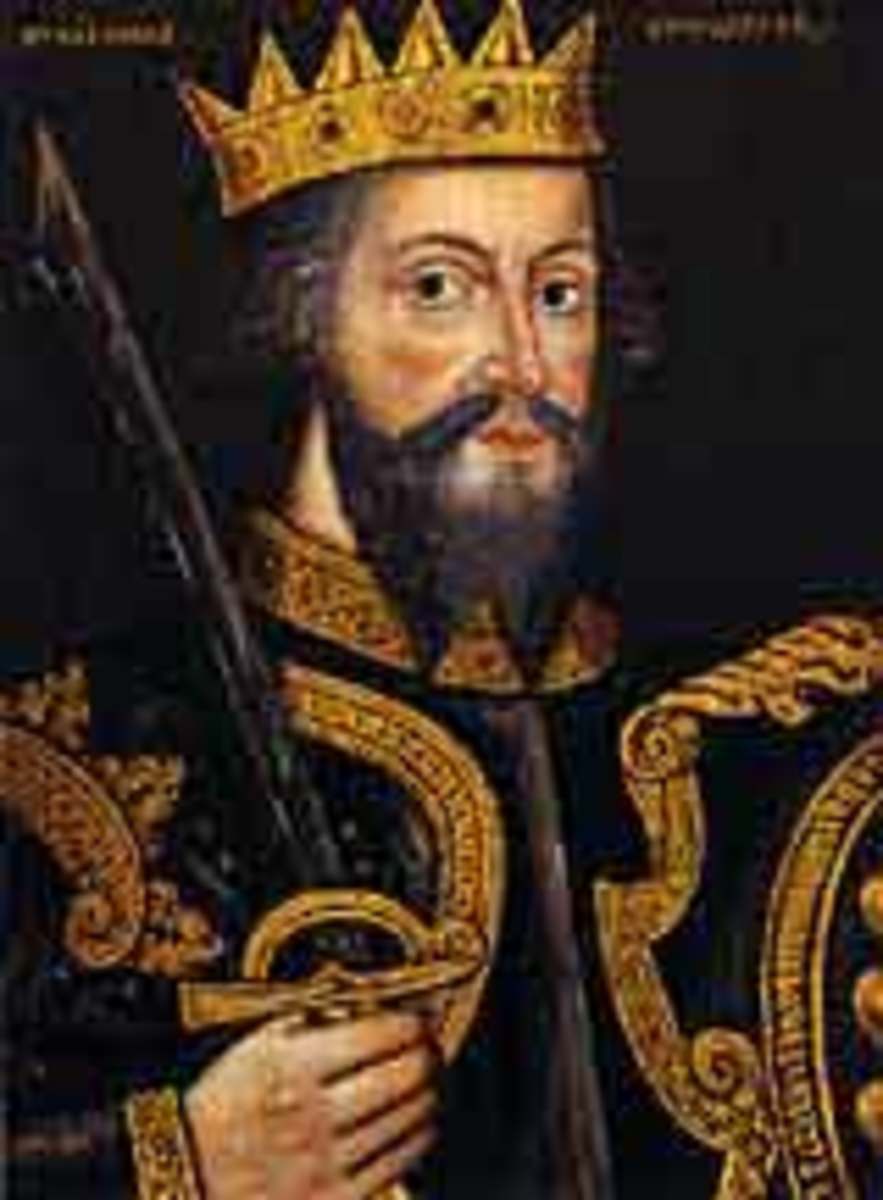- HubPages»
- Education and Science»
- History & Archaeology»
- History of Europe
Whig Interpretations of the English Reformation

Church History
The View of Early Whig Historians
Part 1 of Historians and the English Reformation
Whig Interpretations
An important early historian of the English Reformation was James Gairdner, whose main claim to fame came from his work as the editor of some of the volumes in the Letters and Papers, Foreign and Domestic, of the Reign of Henry VIII. Gairdner wrote from an Anglican viewpoint and argued that the study of the Reformation could not be confined “even to one single century,” and that investigators “must look back for predisposing causes” and “forward to the subsequent developments.”[1] Gairdner argued that on the eve of the Reformation, church law had been perverted in regard to the care of souls and to the filling of offices with scandalous bishops.[2] According to Gairdner, the Reformation was not a result of “Lollardy”[3] in England. He only stated this because he viewed Lollardy as an anachronistic term, even though those who wanted reform largely held to Wycliffite views. Gairdner viewed Lollardy as “the great adversary of the Reformed,” but argued that it was not completely without merit. “The one really good thing in Lollardy,” in Gairdner’s estimation, “was that it expressed positive need for a popular religion in which real faith was not lost in a multitude of mere ceremonies and usages, but rested on an intelligible basis.” The unintelligible basis that the Catholic Church rested upon was a result of Scholastic philosophy that concerned itself with “barren speculations” and “fantastic discussions.”[4] In Gairdner’s view, while Lollardy was important in helping the break with Rome, its tearing down of deference to authority was a problematic development.
Gairdner’s view of Henry VIII was less than positive. In discussing the persecution of those who refused to go along with the royal supremacy, he argued that “such a cruel persecution had never been known in England.” However, by Henry’s hard hand, “was the Pope’s authority in England extinguished.”[5] Henry’s reformation led to the resurgence of Lollardy under Thomas Cranmer, the new Archbishop of Canterbury, and Thomas Cromwell, although the heresy became known as the “new learning” according to Gairdner.[6] Regardless of Henry’s break with Rome, during the sixteenth century, the English, Catholics and Protestants, tended to believe in the one holy and apostolic church, although their interpretations of exactly what that meant and what it looked like differed. Gairdner argued that many viewed a supreme ruler of the church in Rome as unnecessary, but with the “lawlessness and faction” during reign of Edward VI, many welcomed the return of order under Mary.[7] Lollardy in its sixteenth century incarnation, “was by no means and innocent attempt to secure freedom for the individual judgment.” According to Gairdner, this heresy under the guise of new learning “was a spirit that prompted the violation of order and disrespect to all authority.” While Gairdner did not view the sixteenth century Roman Church with great admiration, arguing that the administration had become too large and wieldy, he still saw the destruction of authority imbedded in the Reformation as problematic.[8]
An early twentieth century historian who held a view somewhat different from Gairdner was A. F. Pollard. In his work Henry VIII, Pollard argued that Henry VIII was responsible for the onset of the English Reformation. He described Henry as a dictator who forced the Reformation for his own purposes, although there was some concession that the king only gradually came to the conclusion that the break with Rome was necessary. Pollard pointed out that Henry “arrived at his principles by a process of deduction from his own particular case.” Henry VIII portrayed the English Reformation as an inevitable event. Pollard believed that the Reformation would have happened eventually without Henry, and that the king’s despotism may have made the break less violent than it might have otherwise been. While there were occasional executions in London, they were generally held with at least some concern over legality. This was a contrast to the continental wars of religion that had massive amounts of bloodshed. England saw no such bloodbath. In spite of Henry’s activity, Pollard posited that the monarch would have been unable to accomplish reform without at least some consent of the people. As evidence, this historian made a comparison between Henry’s success (with the consent of the people) and the failure of Northumberland to establish Jane Grey against the will of the people that wanted Mary Tudor on the throne. Pollard wrote that Henry “led his people in the way they wanted to go, he tempted them with the baits they coveted most, he humored their prejudices against the clergy and against the pretensions of Rome, and he used every concession to extract some fresh material for building up his authority.” Lollardy was not a word that Pollard used in describing the actions of the people, however. Henry, although a tyrannical, despotic dictator, merely fed upon the anti-clericalism that he observed, according to Pollard. This belief in a great over-arching anti-clericalism amongst the English people was a common thread in many of the early Whig interpretations of the English Reformation.[9]
Eminent Tudor historian Geoffrey Elton pointed to J. A. Froude as the most important Protestant historian of the Reformation to precede his own day. Froude pointed to the universal distaste that all groupings of people of faith had for Henry VIII’s actions. Catholics denounced Henry as “a visible servant of the devil,” the High Church Anglicans resented his establishment of the crown over the clergy, and the Protestants detested the king’s treatment of the good Protestant Queen Anne Boleyn. Yet, Froude went on to argue that in spite of this distaste, the Reformation was a great advancement. If the Reformation had failed in England, the nation that was the “hinge” on which the fate of the movement turned, “the Catholics were assured of universal victory.” Froude viewed the Catholics as encouraging superstition and religious ignorance, while in contrast, the reforms that Henry and his able advisors instituted were the wellspring that led to refreshing waters of the great Elizabethan Age, although there is now serious debate as to how great the reign of Elizabeth I actually was.[10]
Sir Maurice Powicke, another traditional scholar, argued in his book titled The Reformation in England that the Reformation was “an act of the state” and a “revolution.” While this book argued that the state forced the Reformation upon the people, it contended that the Whig view of a quick Reformation was correct. Powicke wrote that “the momentous step was so easy,” and that “the development of a united Christendom under Papal guidance had itself involved a gross usurpation of the rights of bodies politic, and that Christian unity was not bound up with the supremacy of Rome.”[11] In his discussion of the Pilgrimage of Grace that rose of against the dissolution of the monasteries, Powicke argued that the Pilgrimage was “a demonstration rather than a rebellion” and “directed against the ‘new learning’…as much as against the Dissolution.” However, Powicke also argued that there was “no strong feeling against [the monasteries] except among the Reformers,” but then finished his discussion of the Pilgrimage of Grace by stating that if all of England had felt like Thomas More and the Carthusians who were executed for their belief, “the Pilgrimage of Grace would have been a national, an irresistible movement.”[12]
An early opponent of the widely-received historiographical tradition of the Whigs was Francis Aidan Gasquet. His opposition should come as no surprise due to the position he held as a Cardinal in the Roman Catholic Church. However, his arguments in The Eve of the Reformation, first published in 1900, have been largely corroborated by more modern scholars. In the introduction of this work, Gasquet framed the problem in the following manner:
To some, it appears that the Church on the eve of the Reformation, had long lost its hold on the intelligence and affection of the English People. Discontented with the powers claimed by the ecclesiastical authority, and secretly disaffected to much of the mediaeval teaching of religious truth and to many of the traditional religious ordinances, the laity were, it is suggested, only too eager to seize upon the first opportunity of emancipating themselves from a thralldom which in practice had become intolerable…such writers assume that in reality there was little or no practical religion among the mass of the people for some considerable time before the outbreak of the religious difficulties in the sixteenth century.
Gasquet investigated the primary sources available to him, such as the published writings and sermons of those involved in the era of reform. He also discussed some of the common plays that the churches presented at Christmas and Easter. In opposition to the accepted idea that the Reformation led to a revival in learning, the Cardinal argued that learning was alive and well during the fifteenth century, before the Reformation even took place. Gasquet used the words of Martin Luther himself to back up this assertion. The Eve of the Reformation also argued that there was no widespread opposition to the pope’s office even at the time of the Reformation. To back up this claim, Gasquet referred to the verbal wrangling that occurred in relation to the Reformation statutes and the status that Henry claimed in them. The compromise was a concession that would allow good Catholics to support the statutes without denying the pope. Gasquet’s work concluded with two chapters that investigated the place in English life of what Protestants referred to as superstition. By referring to wills and obituaries, the author showed that people still worried about purgatory and went on pilgrimages right up to the time of the Reformation itself. While these historical positions are not radical today, in Gasquet’s time, they definitely went against the grain of the established scholarship.[13]
Part 1 of Historians and the English Reformation
[1] James Gairdner, Lollardy and the Reformation in England: A historical Survey, Volume I (London: MacMillan, 1908), vii.
[2] Ibid., 249-253.
[3] Gairdner’s use of the term Lollardy is somewhat nuanced. While he argued that Lollardy was not a major factor in the Reformation, he pointed out that those who carried out the Reformation used Lollardy under the terminology of the “new learning.” The new learning and Lollardy are used somewhat interchangeably, although Gairdner argued that Lollardy was an anachronistic term because Henry and others involved in the Reformatin did not really use the term. See Gairdner, Lollardy and the Reformation in England, Volume III, vii-viii and Gairdner, The English Church in the Sixteenth Century, xi.
[4] Ibid., 287-288.
[5] Ibid., 304-305.
[6] Ibid., 314.
[7] James Gairdner, The English Church in the Sixteenth Century from the Accession of Henry VIII to the Death of Mary (London: MacMillan and Co., 1904), ix-xi.
[8] Ibid., 394-395.
[9] A. F. Pollard, Henry VIII (London: Longmans, Green and Co., 1919), available at http://www.gutenberg.org/files/20300/20300-h/20300-h.htm#page427; Internet; accessed 23 November 2010.
[10] J. A. Froude, The Divorce of Catherine of Aragon (Charles Scribner’s Sons, 1891), 1-20, available at http://books.google.com/books?id=-SBSYi4jjHUC&printsec=frontcover&dq=j.+a.+froude&hl=en&ei=LKHsTJDiFIzlnQeOu5DYAQ&sa=X&oi=book_result&ct=result&resnum=1&ved=0CCMQ6AEwAA#v=onepage&q&f=false; Internet; accessed 23 November 2010.
[11] Maurice Powicke, The Reformation in England (New York and London: Oxford University Press, 1941), 1-2.
[12] Ibid., 27-30.
[13] Francis Aidan Gasquet, The Eve of the Reformation: Studies in the Religious Life and Thought of the English People in the Period Preceding the Rejection of the Roman Jurisdiction by Henry VIII. (London: G. Bell and Sons, 1927), 1-2, 7, 98-100, 391-394.


